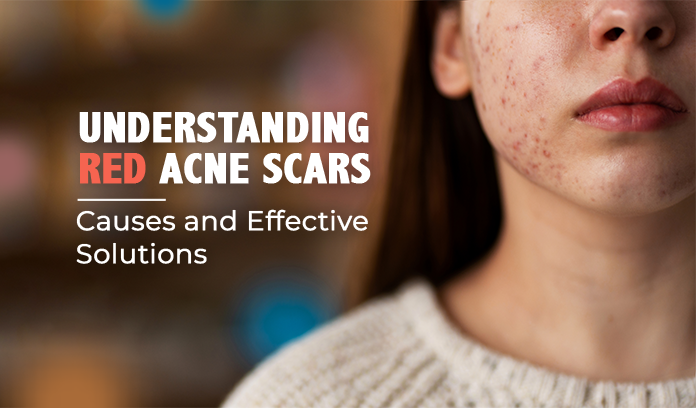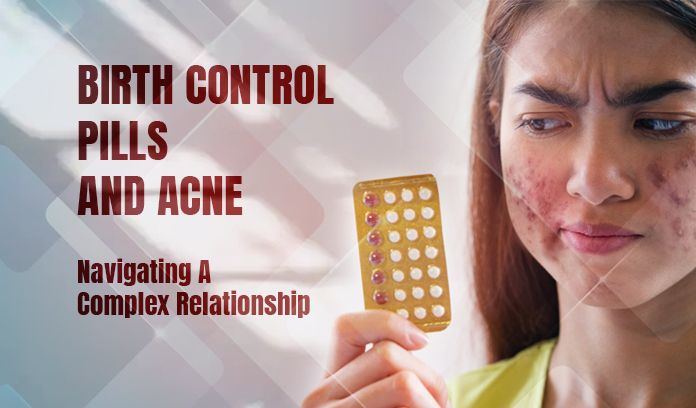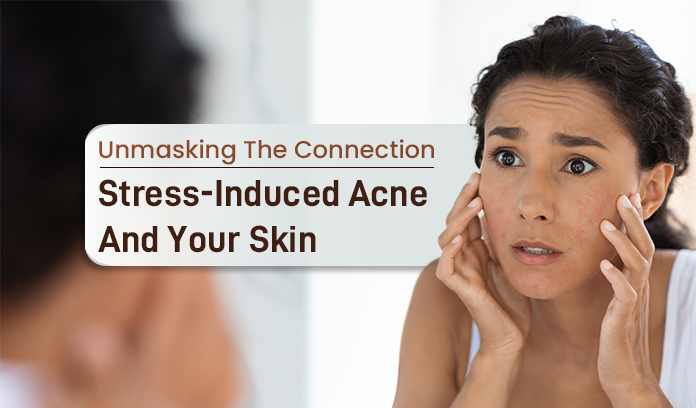Red acne scars are an all too common concern for individuals who’ve battled acne in the past. These scars can be frustrating and cause insecurity, but understanding their causes and effective treatment options can help reclaim our confidence while achieving smoother, clearer skin.
What are Red acne scars?
Also known as post-inflammatory erythema (PIE), red acne scars are caused by inflammation and damage to the skin’s blood vessels during the time when acne lesions begin to heal.
They commonly appear as pink or red flat marks on the skin and are often mistaken for active acne marks. Red acne scars can be notoriously stubborn and take their time to fade.
Causes of Red acne scars
- Inflammation: Inflammation plays a key factor in the development of red acne scars. When acne lesions become inflamed, they can cause damage to blood vessels, resulting in redness and discoloration.
- Picking or Squeezing: Picking or squeezing acne scars can worsen inflammation and increase the risk of developing red acne marks. It’s imperative to resist the urge to pop or squeeze pimples.
- Sun exposure: Exposing acne blemishes to the sun without thorough protection can make them even more noticeable. UV rays can darken and draw out the healing process of these scars.
Effective solutions for Red acne scars
- Topical treatments: Vitamin C, Niacinamide, and Retinol are some of the common potent ingredients used in over-the-counter products for boosting skin cell turnover and fighting inflammation.
- Chemical peels: Dermatologists often recommend chemical peels to refine the appearance of red acne scars. These treatments exfoliate the skin’s topmost layer, revealing smoother or more even-toned skin beneath.
- Microneedling: Controlled micro-injuries on the skin are created with the help of injecting needles, helping stimulate collagen production and fading acne scars over time.
- Laser therapy: Laser treatments, such as intense pulsed light (IPL) and fractional laser, can target the blood vessels responsible for red acne scars, helping reduce their appearance.
- Sun protection: Applying a broad-spectrum sunscreen with an SPF of at least 30 is crucial in preventing further darkening of red acne scars. Make sun protection an everyday habit to ensure the scars continue to fade.
- Patience: Red acne scars can take several months to actually fade. It’s essential to be patient and consistent with your choice of treatment method.
- Seek a dermatologist’s help: If red acne scars worsen or are causing significant distress, consult a dermatologist. They can recommend personalized treatment plans based on your skin type and scar severity.
In conclusion, red acne scars, or post-inflammatory erythema, can be a challenging but treatable skin woe.
Understanding their causes and the various treatment options available, from topical applications to professional procedures, is key to achieving smoother, blemish-free skin. Remember to prioritize sun protection and seek advice from a dermatologist to create a tailored acne treatment plan.
With time and considerable patience, you can regain your confidence and enjoy the benefits of clearer-looking skin.











